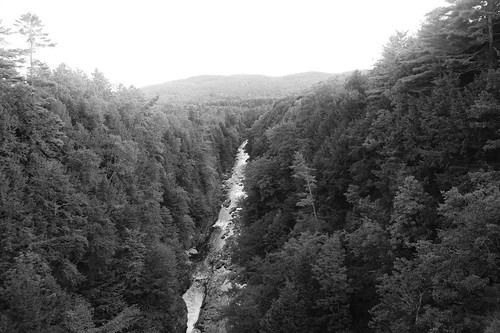The following is a reflection on Exodus 3:1-15, the Old Testament lesson for August 28, 2011, according to the Revised Common Lectionary (Proper 17).
• Also check out a reflection on the Gospel lesson for the same day .
When Moses saw a bush that was burning, but not being consumed, his curiosity was piqued. He needed to know more. He needed to take a closer look.
And so, he took the time to go and see this wondrous sight.
“When the Lord saw that he turned aside to see, the Lord called him out of the bush.”
This is, perhaps, a small point, but when God set a bush ablaze, he didn’t choose a bush right in front of Moses. God didn’t choose the bush that Moses was about to stumble upon.
It was within sight, but at enough distance that Moses would have had to go out of his way to explore it.
And he did. And it was this curiosity that brought Moses to a wondrously burning bush, which turned out to be so much more.
It parallels, in a wonderful way, God’s hearing Israel’s cries. They were a nation of slaves. Brick makers. A pitiable people, really.
Certainly not a people that one would expect the Creator of the Stars of Night to be paying much attention to.
But, in a sense, God’s merciful curiosity drew him to this suffering people. His people.
The people He would work through Moses, the shepherd, to free.
The Exodus and the call of Moses are thick lessons with strata upon strata of meaning to sift through. But, in a simple sense, the third chapter of Exodus bids us, the church, to be curious of the world around us.
This mission field isn’t always right in front of us. Sometimes we need to follow our instincts off the path to get a closer look. And sometimes we may just hear the Voice of God when we do.
In ministry we are called, often enough, to look more closely. Listen more intently. And search out the nooks and crannies of the world around us, and hear the cry of people we might not normally hear.
And then, set on fire, we do what God does. What he asks us to do.
Bring his holy freedom. Freedom from oppression, hatred, fear, sin, and even death itself.
